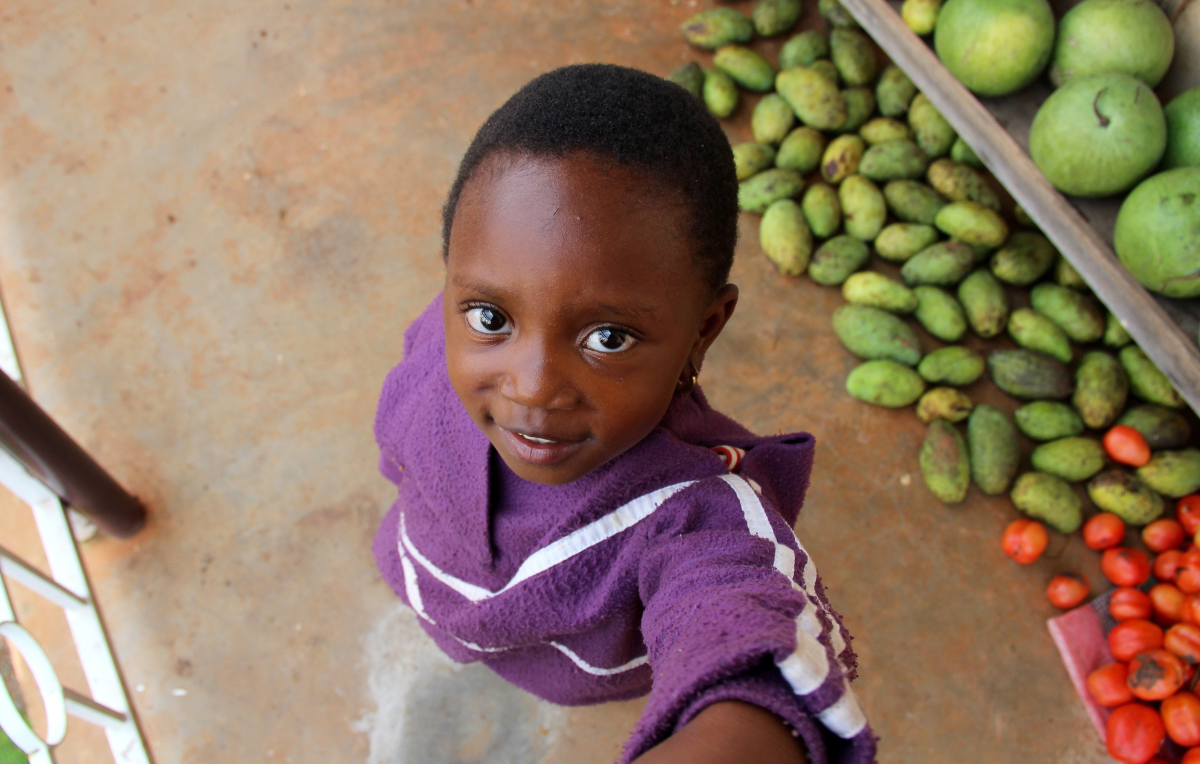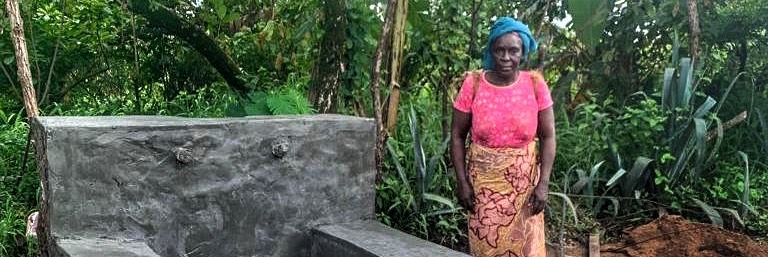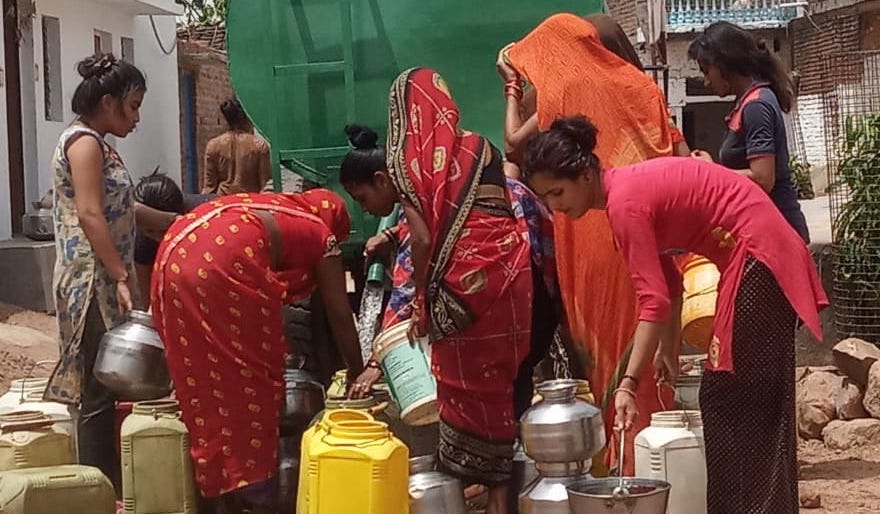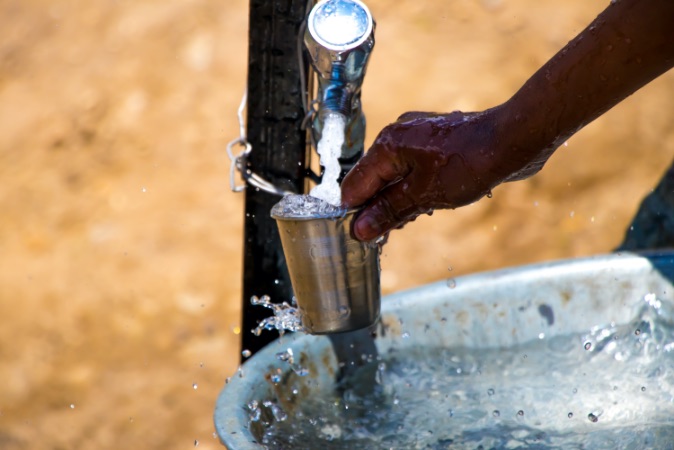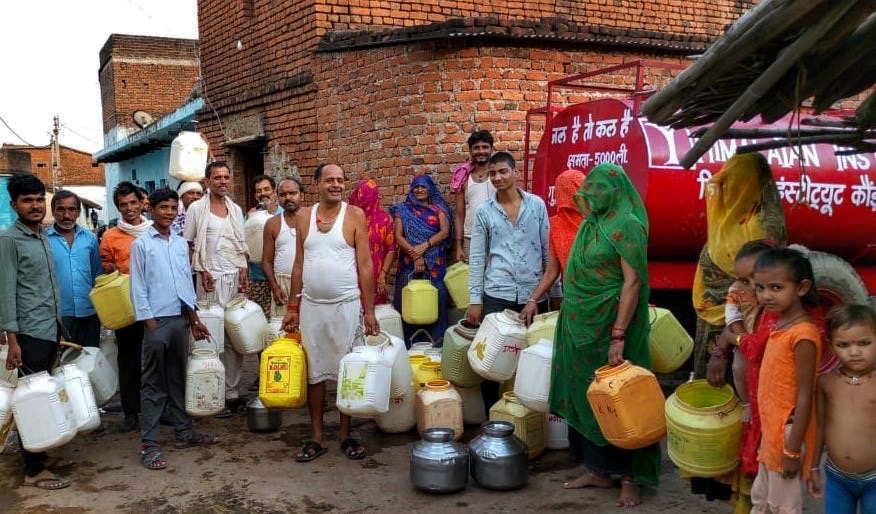
Introducing HI India’s Second Adopted Village: Lakheri
Access to clean water is a fundamental human right, yet due to the worsening climate crisis, an alarmingly increasing number of communities around the world—including those closest to the Himalayan Institute’s campuses in India—are struggling now more than ever with water scarcity and inadequate distribution systems. In light of this persistent and critical need for clean water, HI India has recently adopted a second village as part of our ongoing Clean Water and Public Health Initiative: Lakheri.
Located just 2 miles from the Himalayan Institute’s Khajuraho campus, Lakheri now joins Kaunda as part of a growing collective of nearby communities to which our water tankers are delivering a consistent, reliable supply of clean water daily. Home to many of our hard-working, dedicated campus staff, we are especially heartened to be able to give back to the residents of both these villages, while at the same time serving several thousand inhabitants in the area by providing approximately 10,000 liters of clean water on a daily basis.
Lakheri, like many other villages of Northern India, experiences recurring water shortages due to its location in a “rain shadow” district and hence, is forced to contend with extreme water scarcity for prolonged periods of time. As previously detailed in last year’s HI Humanitarian panel discussion and blog post, “Without Clean Water, Things Won’t Move,” this makes it especially challenging for families to meet basic needs and be productive—much less thrive, particularly during the intensely dry summer months typical of the region. Recognizing the urgency of the situation as global temperatures continue to rise and much-needed rainfall continues to diminish, the Himalayan Institute Humanitarian team has embarked on a proactive clean water distribution campaign with the objective of not only skillfully navigating the current, more pressing circumstances but also establishing long-term, sustainable strategies.
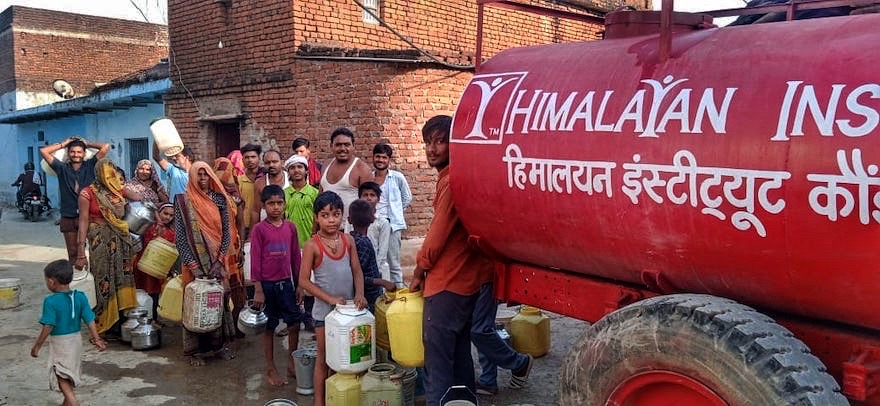
Enhancing the Water Supply—Our Newly Constructed Pond
To ensure a steady and consistent water supply for these local villages, we’ve implemented a multi-faceted approach. One of the key strategies involves strengthening the existing water infrastructure; specifically, and most recently, digging a new pond to serve as a rainwater harvesting structure on the Himalayan Institute’s Community Center land. Modeled after our first well with supporting pond system on the HI Khajuraho campus (built and enhanced between the years 2017-2021), this second pond—situated just 200 yards away from our new HI Community Center well—measures 75 feet by 95 feet, has an initial depth of five feet, and boasts an impressive starting storage capacity of approximately 400,000 gallons.
While the pond is currently empty, once the monsoon rains arrive later this month or in July, it will begin to fill and recharge the water table, including the nearby well. Our HI Humanitarian team is optimistic and greatly enthused by the completion of this first phase of the new pond construction. We are certain it will go a long way in augmenting the area’s water supply—meeting the communities’ most immediate water needs not a moment too soon.
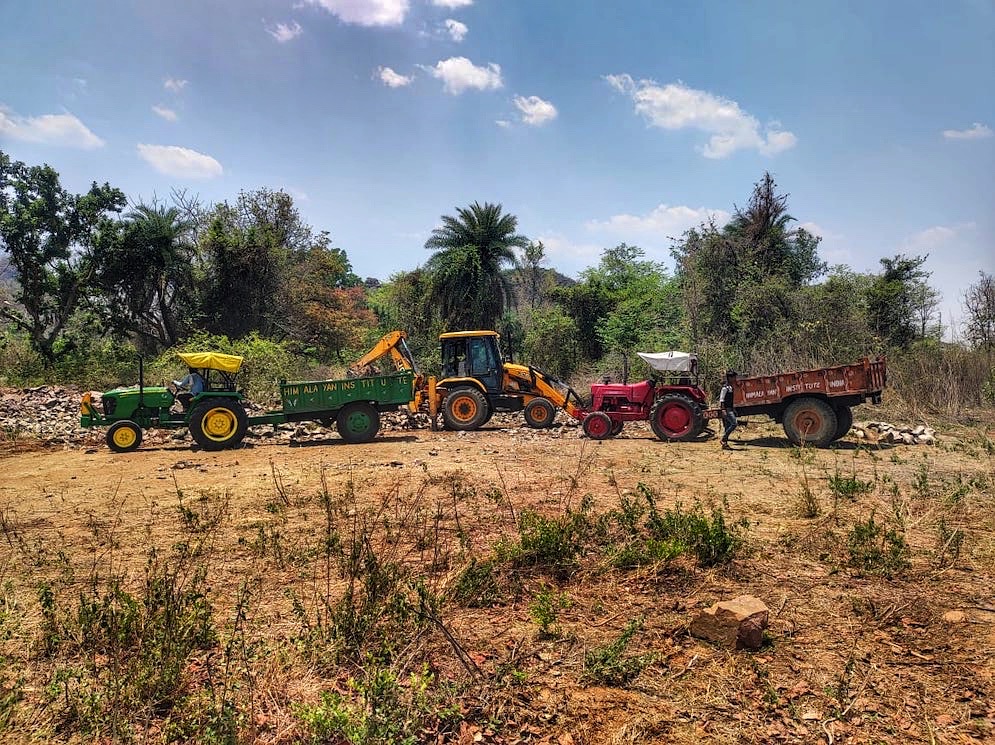
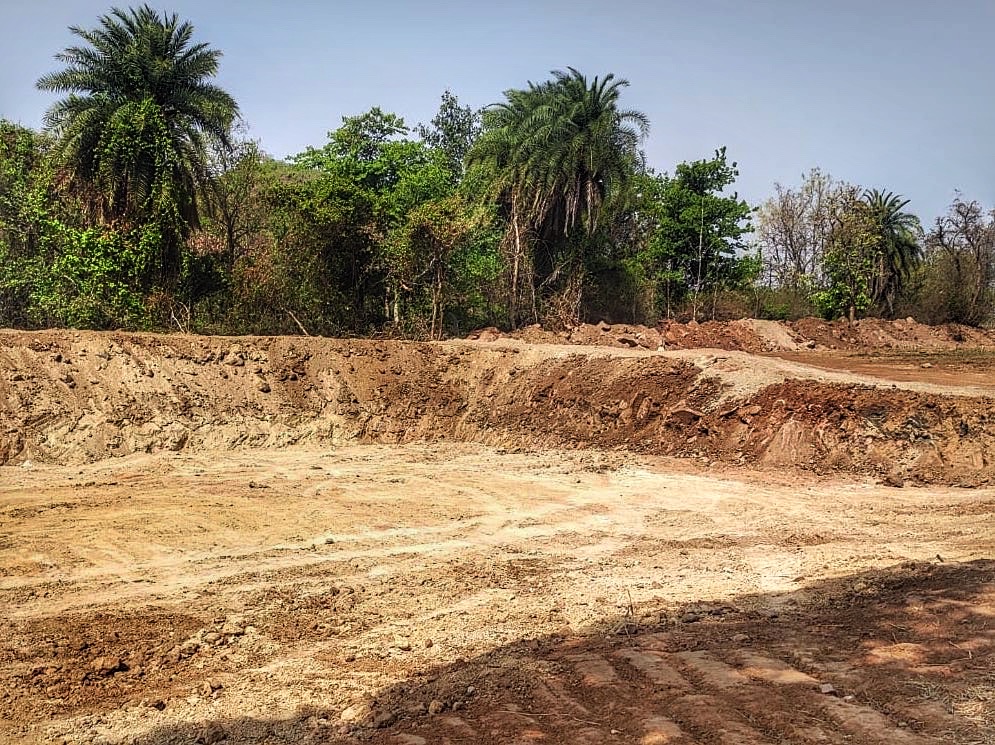
A Step Towards Sustainability
While construction of the new pond is another significant step forward in our efforts, the core understanding and focus of the Himalayan Institute’s humanitarian initiatives emphasizes the establishment of enduring, sustainable solutions as being of primary and utmost importance. Keeping in line with this commitment, phase 2 of HI India’s clean water distribution project will therefore include a deepening of the new pond next year once it stabilizes. This expansion of the pond will serve to further increase its storage capacity, just as was done in 2022 with our first pond on the HI Khajuraho campus. By continually researching and investing in the most efficient and cost-effective infrastructure improvements available, we’re striving to impactfully respond to the escalating water needs of Lakheri, Kaunda and the surrounding area for decades to come.
Access to clean water is a basic necessity that should be available to everyone. Through our clean water distribution projects in India and Cameroon, Himalayan Institute Humanitarian is making substantial strides toward alleviating the water crisis and improving the lives of the local residents in the communities where we work. Together, let us work with passion and steadfast resolve towards a world where clean water is accessible to all.
The Himalayan Institute’s humanitarian initiatives in Cameroon and India depend upon the love and support of our donors. The progress and development we have seen over the years could not have been possible without you, and for this we are truly grateful. Together, we are creating peaceful, flourishing communities throughout Cameroon and India.
For more information about our Global Humanitarian Projects, please click here. If you would like to donate, please click here.
Sign up for our newsletter to receive updates on our humanitarian projects!

